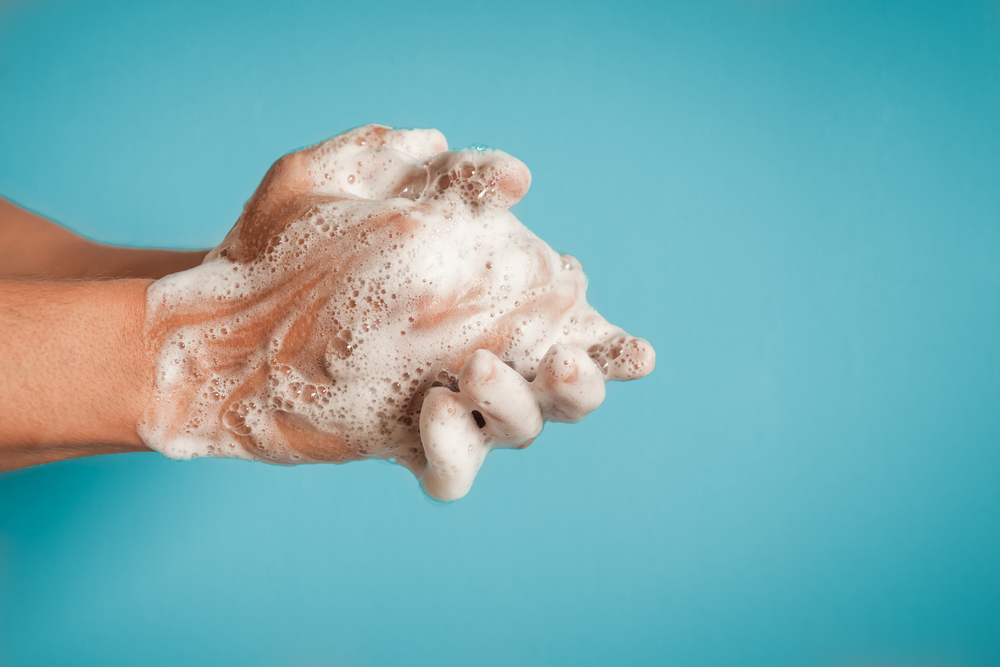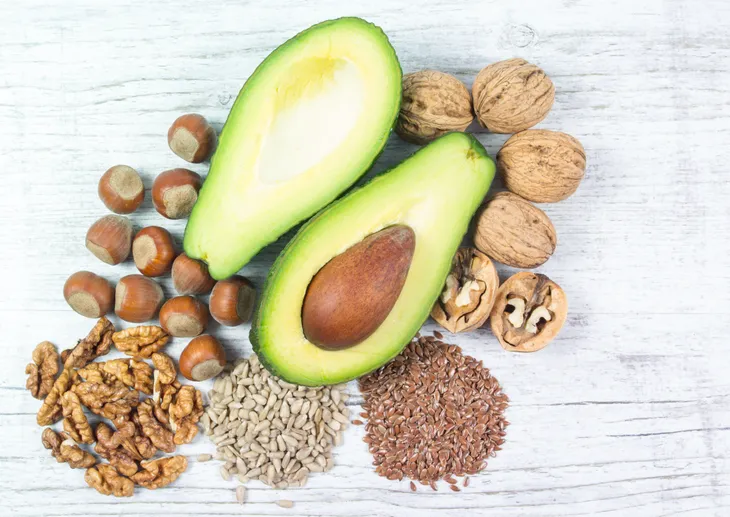Our immune system is pretty incredible and does quite a good job of protecting us from disease-causing microorganisms. However, we still want to do everything we can to boost our immune system and keep it healthy. With that being said, how many things do we do on a daily basis that may affect our immune system? By making better, healthier choices, you can decrease your chances of contracting both contagious and chronic illnesses.
Make a New Friend
Did you know that women who report living in highly satisfying marriages have lower risks of cardiovascular disease than those in less satisfying unions? If you’re not hitched, you can replicate many of the benefits by expanding your social circle.
How can you foster new friendships? One way is by reaching out through social networking. Apps such as Nextdoor enable you to find people with similar interests who live in your community. You can also take on volunteer opportunities with causes you feel passionate about or adopt a social hobby, such as joining recreational sports leagues.
Dance
When it comes to exercise, all movement can benefit your immunity. However, dance may corner the market on the most significant perks because it combines both physical activity and music. Researchers discovered that listening to music for 50-minutes — less than the length of many workouts — boosted the levels of antibodies in participants’ systems. The effects work even if the patient is unconscious. Studies performed on those under surgical anesthesia show similar results.
Dancing may also stave off your dementia risk. While any physical exercise can potentially decrease inflammation in the brain, dancing includes choreography, as well. The combination of the mental effort you expend with the calories you burn provides potent healing effects.
Laugh
When was the last time you let go and enjoyed a deep-down, belly-ripping guffaw? Doing so more often could help you fight off colds or flu. Laughter decreases the level of stress hormones in your blood and increases the number of immune cells and disease-fighting antibodies. One Norwegian study even found that those who laugh often tend to live longer than those who are more serious.
What gets you rolling? You could try keeping a folder on your laptop full of memes that never fail to make you smile. You can also tune into a comedy show on television or listen to an entertaining podcast that leaves you in stitches. Even observing the antics of your pets can evoke a few chuckles — if you telecommute, open your office door to your fur babies.
Eat a Rainbow
Have you ever heard the phrase “taste the rainbow” outside of a candy commercial? While you want to lay off the processed sweet stuff to boost immune function, you do want to eat vegetables in a rich range of hues.
Why? The plants you eat contain substances called phytonutrients that can benefit your immune system in numerous ways. For example, blue foods such as berries contain anthocyanins that protect cells from damage and help reduce the risk of cancer. Red foods contain lycopene, a nutrient that is critical for eye health and vision in low light. Dark green veggies like broccoli and kale are excellent sources of folate, a nutrient necessary for making white blood cells.
Add Garlic to Your Meal
Did you know that the foods you eat influence your overall health significantly? One way you can boost your immune function is by adding more garlic to your diet. Garlic is a potent antimicrobial agent that contains allicin, which is a substance that has antiviral and antifungal properties.
Adding more garlic to your diet could potentially help prevent tooth decay by changing the balance of bacteria in your mouth. Research indicates that improving your oral health could stave off the risk of diseases such as heart disease and Alzheimer’s. That’s because the same bacteria that can cause periodontitis can also travel through your bloodstream, leading to inflammation elsewhere.
Go Outside
If you want to boost your immune system, you should head outside. When you take a walk in a forest, you breathe in phytoncides, airborne chemicals that plants emit to protect themselves from insects. When you inhale these substances, it increases the number and activity of your white blood cells.
Additionally, research indicates that spending time in nature decreases your blood pressure. Millions of Americans live with hypertension, which puts them at a substantially increased risk of heart attack and stroke. Getting outdoors also boosts your mood, and scientists discover more about how your emotions impact physical health every day. The happier you feel, the healthier you tend to be.
Work Your Muscles
You might want to pick up weights to achieve more than bulging biceps. Resistance training increases the number of circulating immune cells that help your body fight infection. These cells also help your muscles regrow after exertion, so it makes sense that pumping iron can decrease your chances of getting sick.
However, if you can’t get to a gym for any reason, don’t throw up your hands in despair. You can find inexpensive resistance bands and light hand weights you can keep under your couch. That way, you can do a quick workout during television commercials. Fitness apps such as DailyBurn now feature five-minute sessions, and you can find free sculpting workouts on YouTube.
Choose Healthier Fats
Believe it or not, you do need to consume some fats — but the variety matters when it comes to immunity. Some fats, such as saturated ones from animal products, can increase your risk of various diseases. Experts recommend eating red meats in moderation if you choose to consume them at all.
However, your body does need a mix of omega-3, omega-6 and omega-9 fatty acids for optimal functioning. Your body can make omega-9, but people with diets that also contain the substance can have lower cholesterol and triglyceride levels. Omega-3 and omega-6 occur most abundantly in fatty fish and certain nuts and seeds. If you follow a vegan lifestyle, drinking hemp milk containing both offers one means of upping your consumption of these nutrients outside of supplements.
Stay Hydrated
Did you know that what you drink influences your immune system as much, if not more, than what you eat? The amount of water you have in your body influences everything from how plump your skin cells appear to how well your kidneys function. Dehydration can allow toxins to build up in your bloodstream that your filtering organs then have to work harder to remove.
Intense exercise can decrease immune function temporarily, so it is reasonable for researchers to conjecture that chronic dehydration can impact it as well.
How much water do you need? It depends on how much you eat, how much you work out and your total body size. You can calculate your body’s hydration requirements by taking your body weight, in pounds, and dividing it by 2. That is how much you should drink in ounces. So a 200-lb person should drink 100-ounces of water each day, reports U.S. News and World Report. If you run or bike several miles daily, you will need to adjust the amount needed to account for your exercise levels.
Wash Your Hands
If you haven’t heard the news by now, you should wash your hands several times daily to help prevent the spread of infection. Always lather up after you use the restroom or before you sit down to a meal. You should also wash after you spend any time in public areas touching things such as ATM keypads or grocery shopping carts.
It’s insufficient to run water over your hand for a few seconds if you want to free yourself from pesky germs. You need to lather up and scrub for at least 20 seconds before rinsing and drying. Try singing “Happy Birthday” to yourself twice in your head to keep the time. If you don’t have soap and water available, you can use hand sanitizer. Don’t wipe it on your pants, though — rub it in until it absorbs fully.
Decrease Stress
You probably instinctively feel as if you don’t function at your best when you feel stressed. Your immune system doesn’t work up to its peak potential, either. Researchers analyzed medical students and discovered that those in a three-day exam period had lower immune system function than their peers who weren’t under such intense pressure.
These findings help explain why older individuals or those who are already sick often suffer more adverse outcomes from seasonal infections. Long-term, chronic stress can damage your immune system over time. Consider the situation akin to that of a frontline soldier who never enjoys surcease from bullets flying overhead. Over time, fatigue will lead to a breakdown.
To reduce stress in your life, consider adopting practices such as yoga and meditation. Many mental health professionals now offer counseling via telemedicine, so consider attending even if you previously thought you lacked the time.
Get Some Sleep
As much as you want to finish your Netflix binge session, turning off the television and getting your rest can boost your immune function. Research shows that people who don’t get adequate sleep are more likely to become sick after exposure to a virus.
During sleep, your body releases proteins called cytokines that help your body heal. Sleep deprivation decreases the number of these substances in your system. Adults typically need 7 to 8-hours of quality sleep nightly, while children and teens need more.















